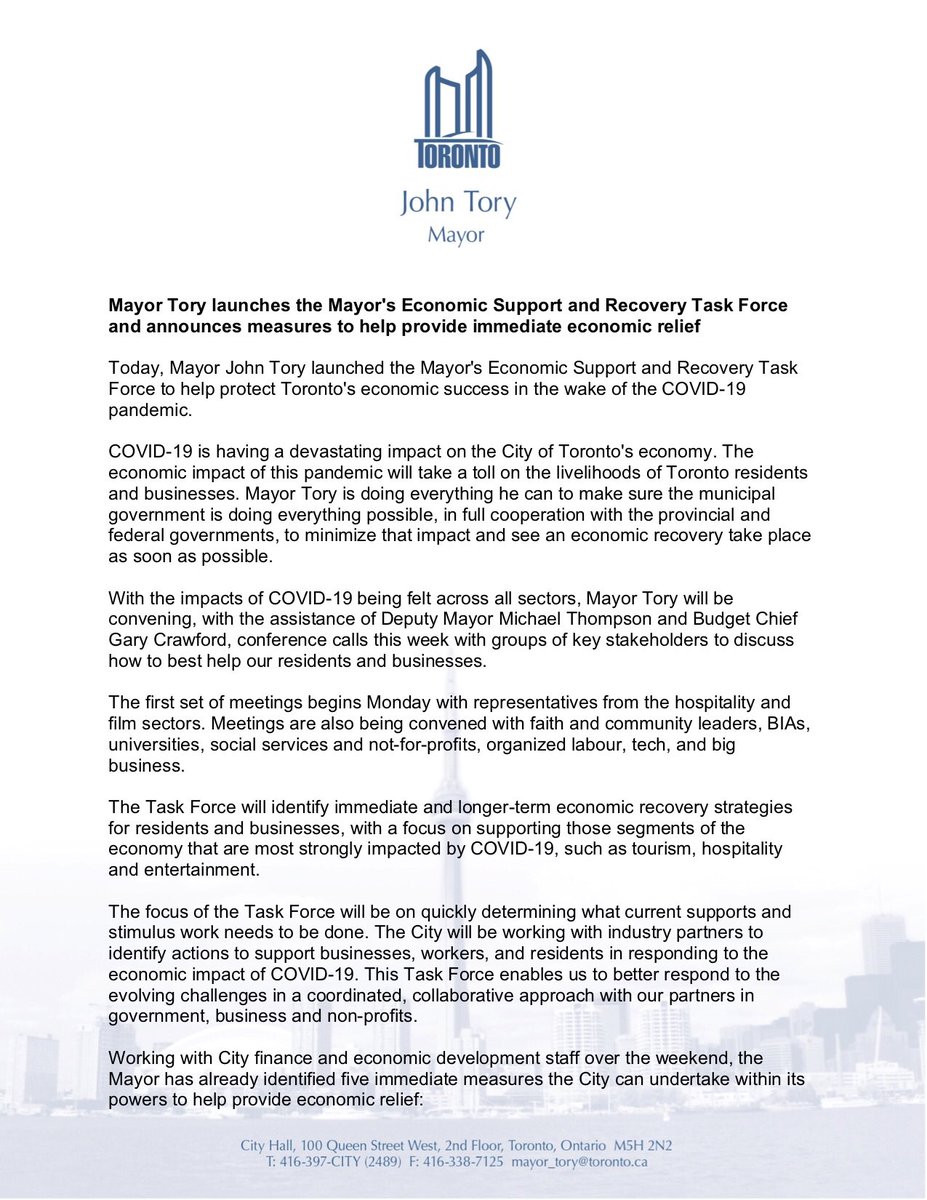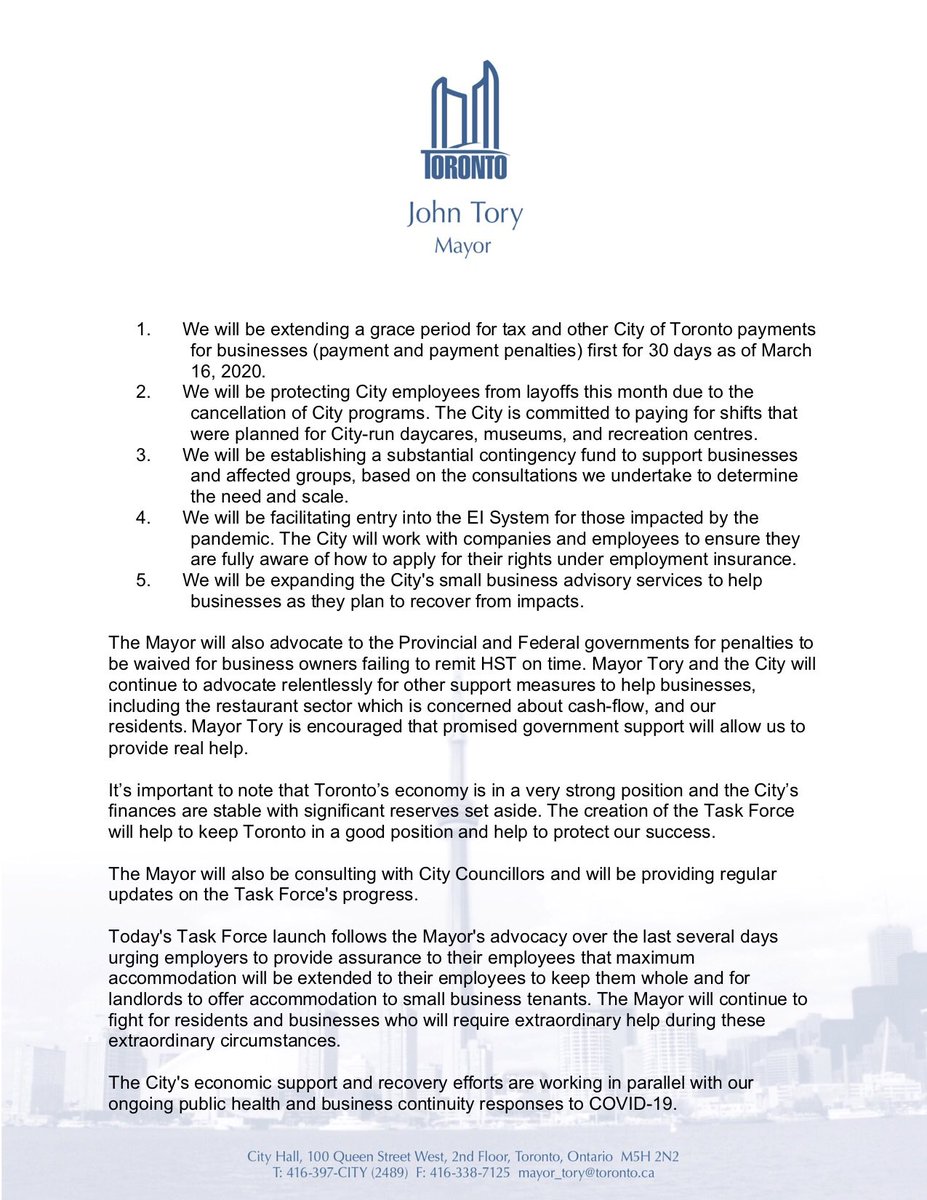There are a number of things within that I don't think governments, and certainly not the public, have given sufficient consideration
(1/n)
- Mitigation (i.e. slowing but not stopping virus spread)
- Suppression (i.e. reducing infections and maintaining that)
(2/n)
The Imperial paper concluded this approach would kill hundreds of thousands of people
(3/n)

This comes at almost unimaginable social and economic cost, which the study doesn't consider #COVID19
(4/n)

Self-employed, zero-hours workers left for dead
The markets would collapse, insurers would collapse, a global depression to make 1929 look like a blip #COVID19
(6/n)
(7/n)
I don't have expertise of health systems/regional dynamics to extrapolate that worldwide, but suffice to say it's not good
It can't account for behavioral change, though
(8/n)
But sticking to this study, here are Imperial's models
(That red line that never moves is bed capacity)
(9/n)
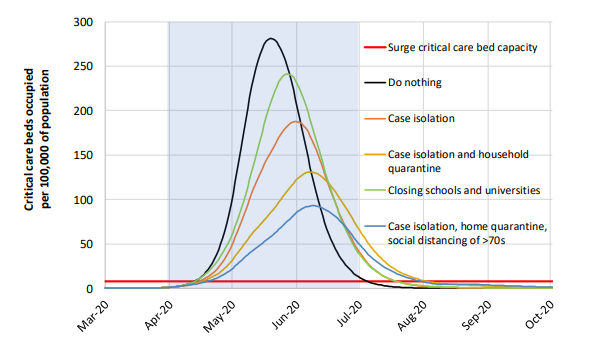
It was this that forced the UK government to change tack (remember, this is after 7 weeks of bungling)
(10/n)
China, SKorea and others have shown that extreme social distancing flattens new infections very effectively
But what happens when the measures are relaxed? We don't yet know #COVID19
(11/n)
You've just about staved off madness and, if the govt has kept its "whatever is need" promise, destitution
Then you go outside to frolic. And this happens all over again in October #COVID19
(13/n)
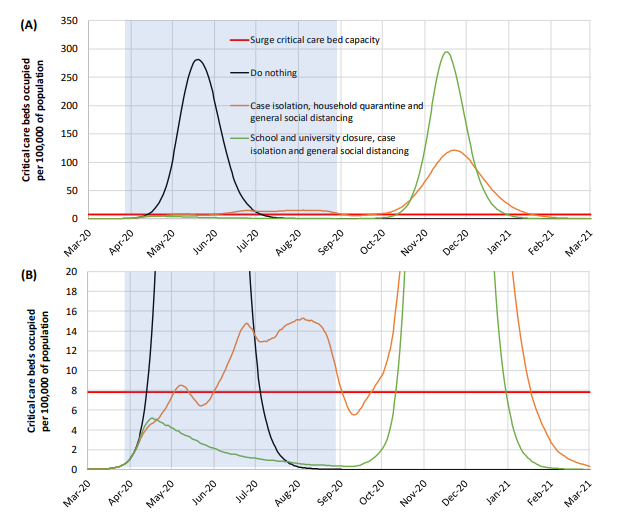
#COVID19
(14/n)
(15/n)
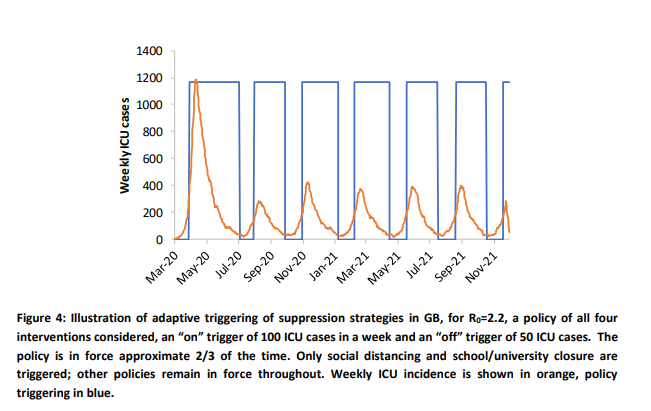
(Compare this with UK/US response, several weeks into this) #COVID19
(16/n)
(Emphasis added) #COVID19
(17/n)
But: "For a national GB policy, social distancing would need to be in force for at least 2/3 of that time until a vaccine was available" #COVID19
(18/n)
I hope you like your front room how it is
(19/n)
"It is not at all certain that suppression will succeed long term; no public health intervention with such disruptive effects on society has been previously attempted for such a long duration of time" #COVID19
(20/n)
How will the world cope with 9-18 months of isolation? It's not possible right?
(21/n)
Even if it were practical, is it *desirable*? Who chooses?
(22/n)
Restaurants close, right? That's pretty "non-essential", no?
That's 4 million people out of work overnight cbsnews.com/news/restauran…
(23/n)
If there's a way to decouple "suppression" from "depression", please get in touch with our world leaders
(24/n)
The 2008 Financial crash caused 250,000-500,000 additional cancer deaths #COVID19
(25/n)
weforum.org/agenda/2016/05…
At some point someone is going to have to work out whether it's better to have a lot of people die from a virus, or lots of people die from an economic meltdown/mental illness epidemic/healthcare collapse
And then someone will have to decide #COVID19
(26/ends)







